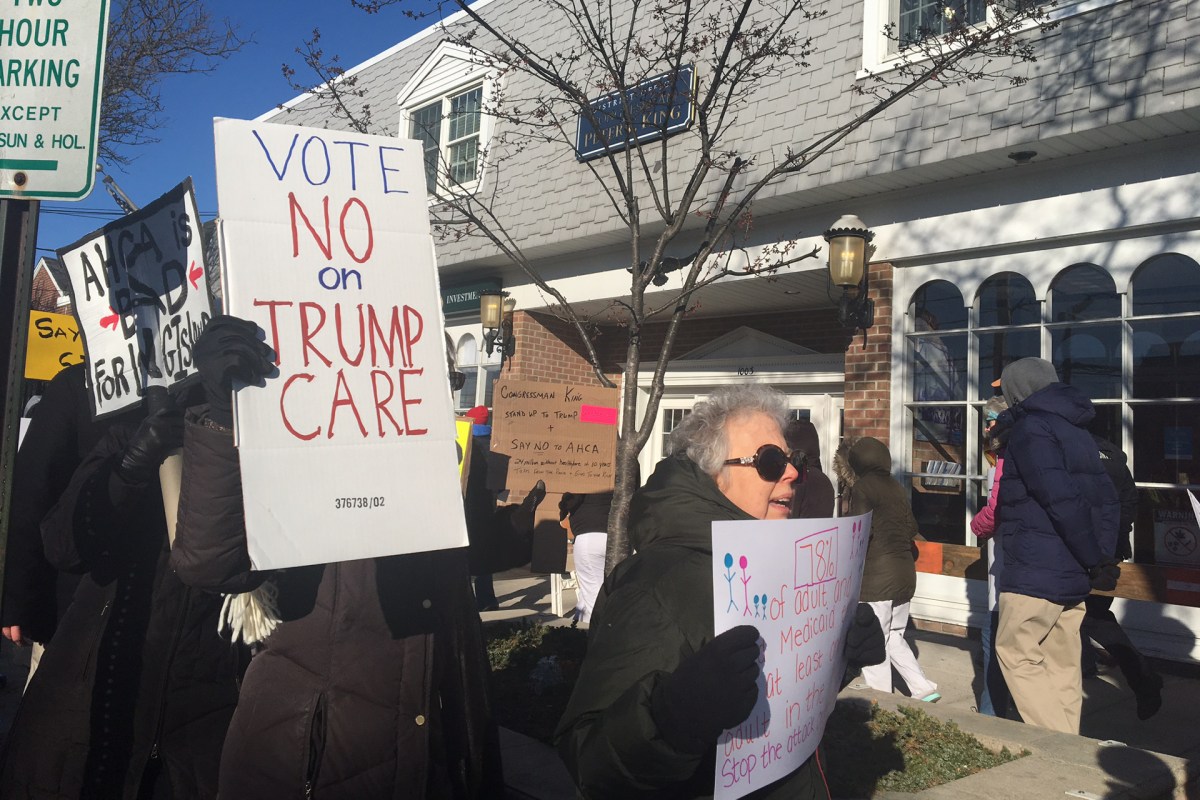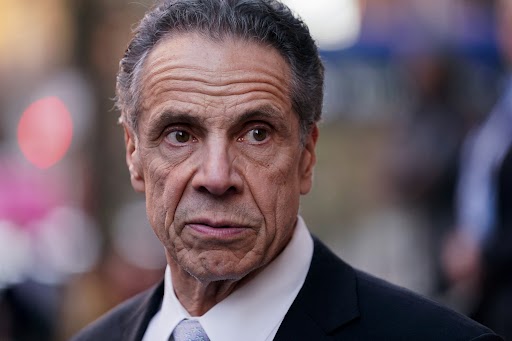President Donald Trump’s promise to dismantle the Affordable Care Act and overhaul health care in America faces its biggest test yet, as GOP lawmakers weigh how repealing Obamacare will affect their constituents.
Several news outlets reported Thursday afternoon that House Republican leaders decided to delay the vote in the face of opposition from many in their own party, possibly for a day.
House Republicans are still on a mission to recruit undecided lawmakers who’ve held out for a variety of reasons. A group of about two dozen hard-line Republicans wants to further gut mandates imposed by the ACA, while more moderate lawmakers have expressed concern about how a change to Medicaid funding would impact their states.
The fight may come down to a provision in the ACA requiring health care plans to cover a range of benefits, including pregnancy, newborn care, substance abuse, prescription drugs and wellness services.
Conservative House members of the so-called Freedom Caucus argue that eliminating those requirements would bring down the cost of insurance premiums because insurers would no longer have to cover certain services. But people under the new plan would potentially have to pay for those benefits themselves if insurers offer leaner plans.
If House leadership agrees to dismantle essential benefits in the bill, it could mean that insurers would no longer have to provide breastfeeding support and counseling to new mothers or pay for preventive tests and screenings for blood pressure, high cholesterol, lung cancer, depression and other conditions.
Lawmakers were negotiating throughout the day ahead of a scheduled vote Thursday night on the bill, dubbed the American Health Care Act, though by mid-Thursday had reportedly postponed bringing it to the floor of the House. Republicans require 216 “yes” votes to move it out of the House and to the U.S. Senate, where some Republicans view the measure even more skeptically than their House peers.
A vote on Thursday would come on the seven-year anniversary of Obamacare, which Republicans have been arguing is unsustainable and is driving up costs.
The bill, which is the brainchild of House Speaker Paul Ryan (R-Wis.), has the backing of the White House. President Trump has joined the fray on Capitol Hill in an attempt to appease some Republican lawmakers who remain on the fence. The president delivered an ultimatum to those so far opposed to the bill, warning that a “no” vote would come back to haunt lawmakers at the ballot box. But it’s unclear if Trump can use the bully pulpit to strike fear in the hearts of undecided House members, considering his historically low approval rating for a new president, and Obamacare’s increased popularity among Americans.
A Quinnipiac poll released this week found that Trump’s base is shrinking in support and that his job approval rating stands at a dismal 37 percent.
As for the GOP health care bill, Quinnipiac found that 56 percent of Americans disapprove of it, 26 percent remain undecided and only 17 percent support it. Additionally, a large majority of voters oppose the proposed elimination of federal funding for Planned Parenthood, which handles many women’s issues, such as breast cancer screening and reproductive health.
“Replacing Obamacare will come with a price for elected representatives who vote to scrap it, say many Americans, who clearly feel their health is in peril under the Republican alternative,” said Tim Malloy, assistant director of the Quinnipiac University Poll.
On the eve of the expected House vote, several dozen demonstrators rallied outside Rep. Peter King’s office in Massapequa Park to pressure the veteran Long Island Republican Congressman to vote “no.”
Several people at the rally interviewed by the Press said they interpreted the act as an attack on the poor and other marginalized groups, and a gift to the rich and powerful through enormous tax breaks.
Despite the bone-chilling cold Wednesday night, demonstrators waved signs and yelled “No Trumpcare!” and “Don’t take away the ACA!”
“This health care bill is a bad deal for most people in the United States,” said Lisa Oldendorp, 70, of Massapequa. “The only people it is good for is the wealthy people who are getting an enormous tax break and the CEOs of the insurance companies, on the backs of the poor and middle class.”
“It fails the first test of everyone getting health care,” she added, referring to Trump’s “insurance for everybody” claim he made after the election.
Barbara Kaplowitz, an insurance broker, said she’s seen the benefits of the ACA firsthand. She said she knew of a couple who delayed opening their own business because at least one of them needed to get the health insurance through their employer to cover them both. Obamacare changed all that, she said.
Standing next to her was Ruth Cohen of Lake Grave, which is not in King’s district, who lamented that the new bill is “about making the rich richer…It has nothing to do with what’s good for people.”
Phil Esposito of Bayport said he fears the GOP health care plan is the beginning of an all-out assault on Medicare, the government program by which he receives health insurance.
“I think they’re screwing the poor people and giving a tax break to the rich,” he said.
King has not yet indicated which way he’d vote on the controversial measure. On Wednesday, Rep. Lee Zeldin (R-Selden) appeared to be leaning toward supporting the bill after an amendment was added by upstate Congressional Republicans that would eliminate all county funding of Medicaid in New York State, except for New York City.
House Democrats are all expected to deliver a resounding “no” vote. When Obamacare passed in 2010, not a single Republican on Capitol Hill supported it.
The impending vote has provoked a war of words between New York Gov. Andrew Cuomo and some New York Representatives after he blasted two upstate Republicans for including the provision cutting county Medicaid funding, which is currently capped at 13 percent. Cuomo called the amendment potentially “devastating” to the state and Long Island’s health care industry. Rep. John Faso (R-Albany) told the governor to “man up” and cover the Medicaid costs so the upstate counties no longer would have to chip in.
Cuomo’s staff delivered a barrage of emails predicting millions of dollars in losses in those Republican Congressional districts if the bill is passed, including a collective loss of $14.6 million for three hospitals in Rep. King’s district. The amendment would lead to a cut of $2.3 billion from Medicaid in upstate New York and on Long Island, Cuomo said.
That prompted Zeldin to admonish Cuomo for fear mongering.
“The amendment is a proposal to shift to the state the local share of Medicaid from the counties outside of New York City, including Suffolk County,” Zeldin said in a statement. “It does not propose a $2.3 billion cut. Governor Cuomo is choosing on his own to react to the amendment, by threatening a cut to scare people. Let’s call this for exactly what it is.”
But if the bill passes, the governor is saying that there’s no way for Albany to make up for the shortfall unless it raises taxes statewide or imposes drastic cuts in state-provided health care. According to the governor’s office, under the Trumpcare proposal, New York would lose $6.9 billion over the next four years.
Meanwhile, Zeldin’s New York Republican colleague, Rep. Dan Donovan (R-Staten Island), has come out against his party’s bill.
“I do not believe that the legislation as currently written is in the best interest of the 740,000 people I represent in Congress and I believe we can do better,” he said.
“The proposed amendment exempts New York City, putting an unfair and disproportionate burden on City residents to fund the entire state’s share of the Medicaid bill,” he added in a lengthy statement. “That’s wrong. I cannot support a deal that gives our district short shrift.”


































